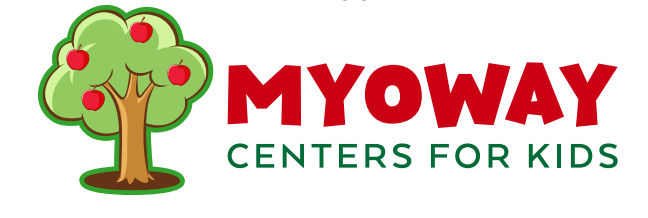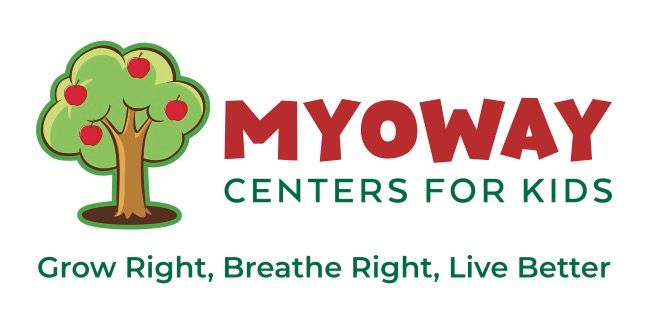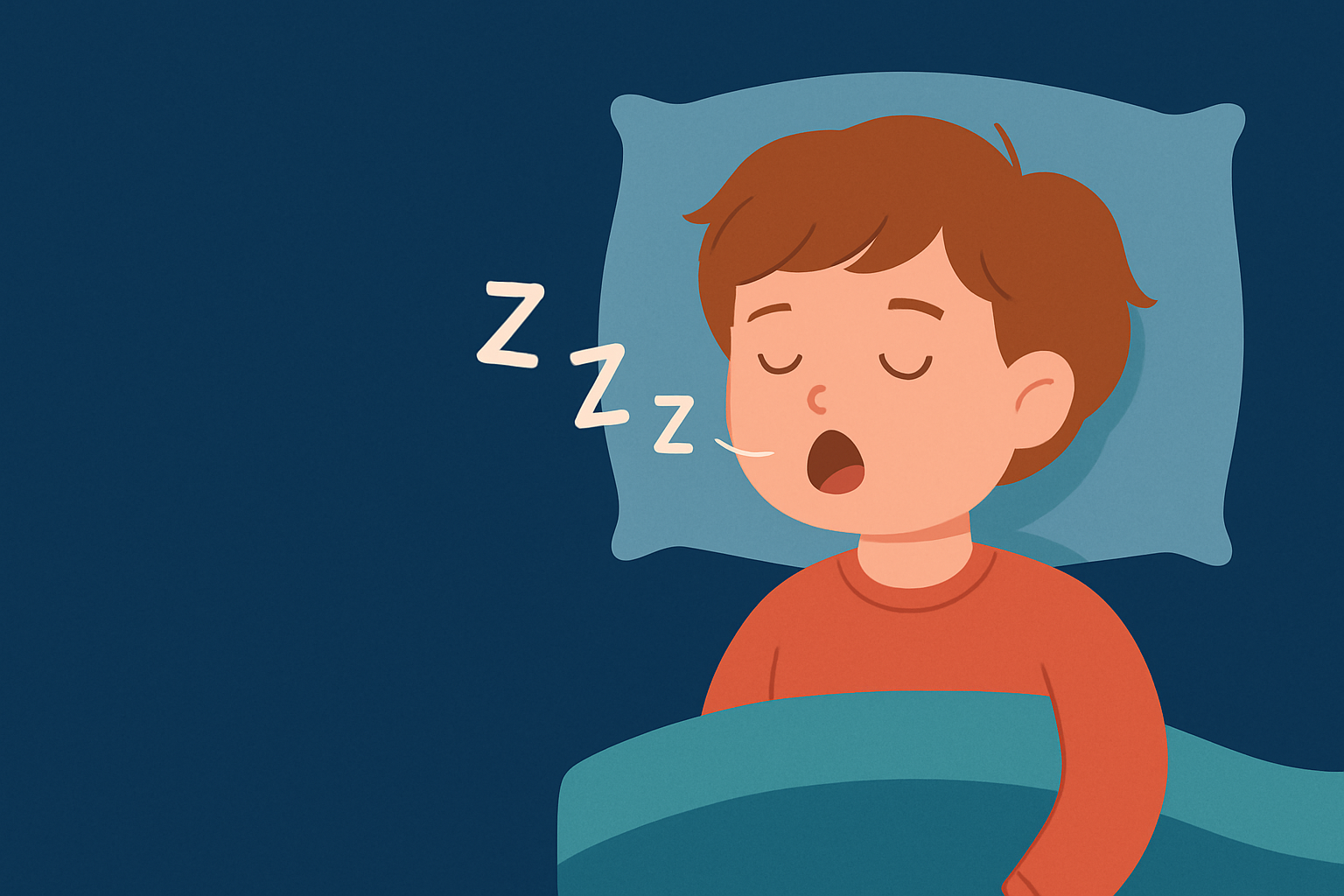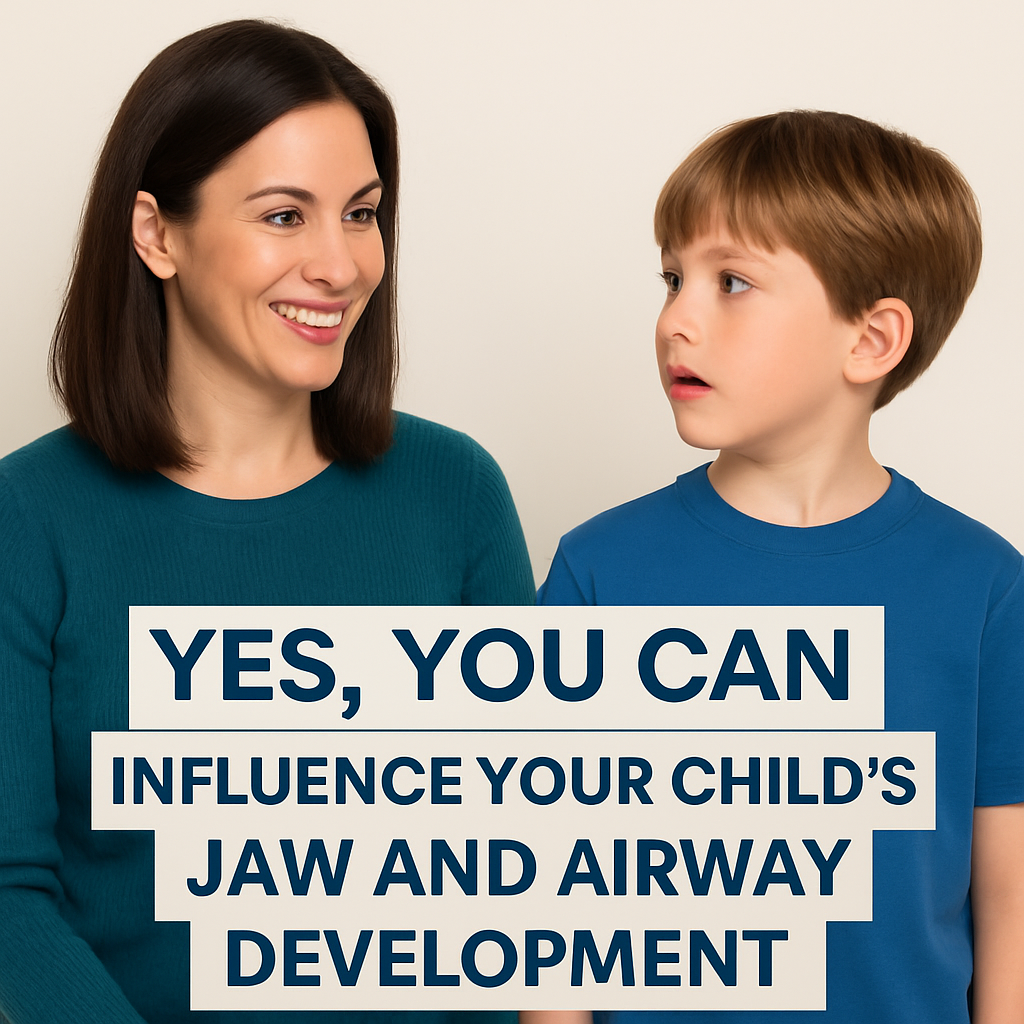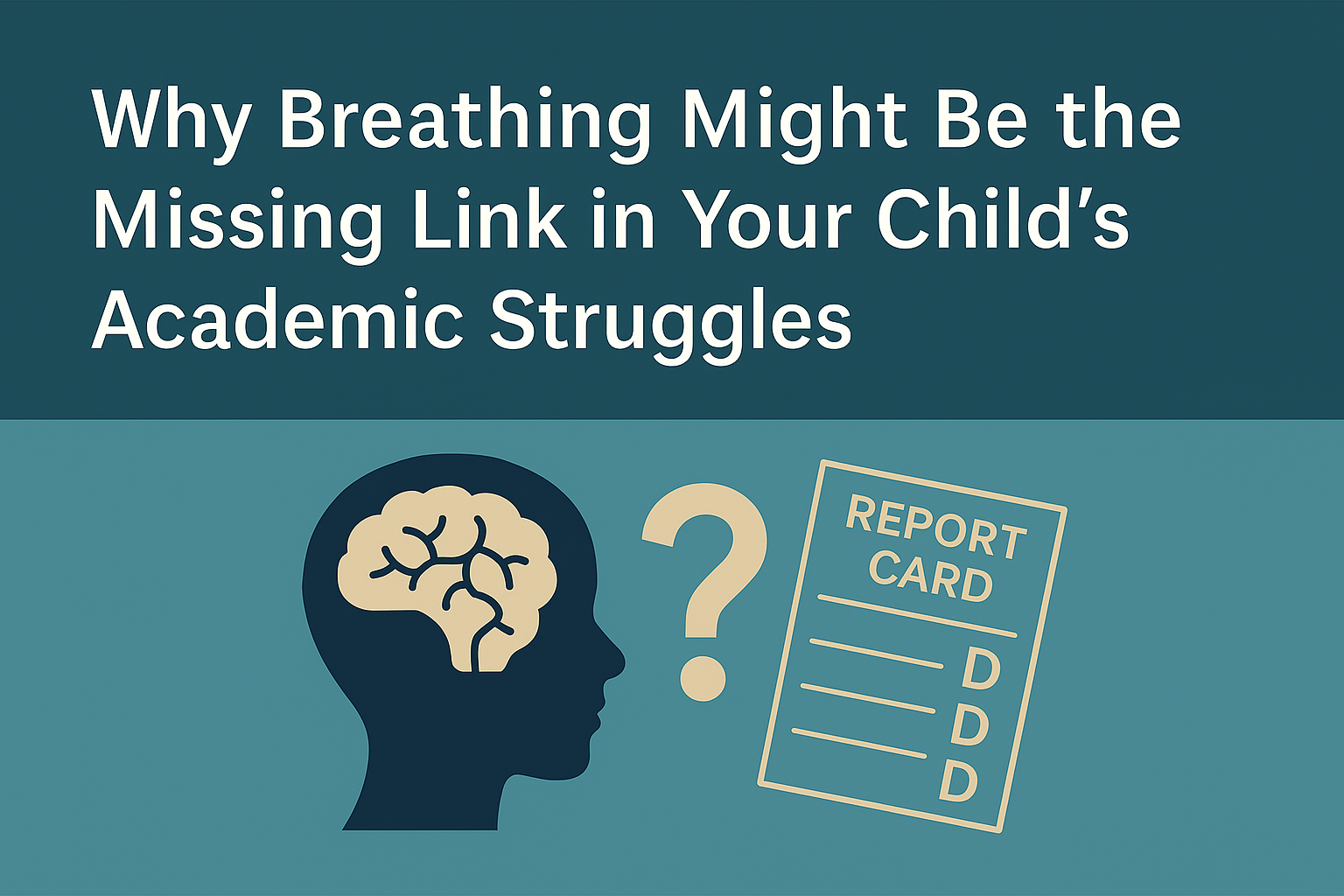Why Snoring in Children Should Never Be Ignored: A Parent’s Guide to Airway and Jaw Development
It Is Not Just Snoring
You may have heard it before. "He just snores a little. It is cute."
Or maybe you have noticed it yourself during a quiet night at home. Your child snores, breathes heavily, or makes odd noises while sleeping. You wonder if it is normal, or if it is something to worry about.
Here is the truth: snoring in children is never something to ignore. It is not just a sound. It is a signal and that signal often points to something deeper, something structural that impacts how your child breathes, grows, and even behaves.
The Hidden Cost of Childhood Snoring
Snoring is often seen as harmless, especially in kids. But what if it is the body’s way of crying out for help? Snoring in children is frequently a symptom of sleep-disordered breathing, a condition where airflow is partially blocked during sleep. This can reduce oxygen levels, disturb sleep cycles, and have long-term consequences for health and development.
When a child is not breathing properly at night, the brain and body are not fully resting or recovering. Poor sleep has been linked to a range of issues including:
- Attention and focus problems in school
- Behavioral challenges often mistaken for attention disorders
- Delayed growth and development
- Weak immune system function
- Mood swings and emotional instability
The frustrating part is that these symptoms are often treated in isolation. A child may be diagnosed with a behavioral condition or prescribed medication when the root cause is actually poor sleep due to restricted breathing.
How the Jaw and Airway Are Connected
Many parents do not realize that snoring in children can be directly related to how the jaw and airway are developing. When the jaw is too small or misaligned, it can crowd the airway and force the child to breathe through the mouth instead of the nose. Mouth breathing becomes the default, especially during sleep, which leads to abnormal tongue posture, weakened facial muscles, and further airway obstruction.
This creates a vicious cycle:
- Jaw development is restricted
- Airway becomes narrower
- Child compensates by mouth breathing
- Mouth breathing weakens oral muscles
- Poor muscle tone worsens jaw and airway development
Why Early Intervention Matters
The younger the child, the more adaptable their growth patterns. Early intervention can significantly improve outcomes by guiding the development of the jaw, face, and airway while the child is still growing.
This is where myofunctional therapy comes in.
What Is Myofunctional Therapy?
Myofunctional therapy is a structured, evidence-based approach that focuses on the function of the tongue, lips, cheeks, and jaw. By retraining these muscles and using specific exercises, therapy can support proper facial growth and airway development.
At MyoWay Center for Kids, we use a combination of therapeutic exercises and medical-grade appliances to:
- Promote nasal breathing
- Improve tongue posture
- Strengthen oral muscles
- Encourage proper jaw growth
- Open and support a healthier airway
This approach is non-invasive and child-friendly. Most importantly, it addresses the root cause rather than just the symptoms.
Real-Life Impact: A Case Example
Consider this common story. A seven-year-old boy is brought to the clinic because he snores loudly and is always tired, even after sleeping eight or nine hours. He is having trouble focusing in school and has recently been referred for behavioral evaluation.
After a full airway assessment and muscle function screening, it is clear that his jaw is underdeveloped and his airway is narrow. He is diagnosed with sleep-disordered breathing due to jaw and tongue dysfunction.
With myofunctional therapy and an airway appliance, his symptoms improve dramatically. Snoring decreases, he wakes up feeling rested, and his teachers notice a difference in his classroom behavior.
This is not a miracle. It is simply the result of supporting his natural growth in the right direction.
Mouth Breathing: A Red Flag for Parents
Mouth breathing is often overlooked but is one of the clearest signs that something may be wrong with a child's airway or jaw function.
Watch for these signs:
- Lips parted most of the day
- Snoring or noisy breathing at night
- Dry mouth in the morning
- Forward head posture
- Restless sleep or bedwetting
- Frequent colds or allergies
If any of these sound familiar, it is time for a deeper look into your child’s airway and breathing patterns.
Common Myths About Snoring and Jaw Development
Myth 1: Kids will grow out of snoring
Fact: Many children actually grow into more severe breathing issues if the root cause is not addressed early.
Myth 2: Only orthodontists handle jaw issues
Fact: While orthodontics plays a role in alignment, myofunctional therapy is focused on the function and muscle development that guide how the face and airway form.
Myth 3: Snoring is normal in children
Fact: No amount of snoring is considered normal. It is always a symptom of something deeper.
Myth 4: Surgery is the only solution
Fact: Many structural issues can be corrected or improved with non-invasive therapies when caught early.
What Makes MyoWay Different
At MyoWay Center for Kids, our team is trained in airway-focused care. That means we look beyond teeth and address the root causes of mouth breathing, snoring, and poor sleep.
We are one of the only pediatric centers using the world’s first myofunctional exerciser appliance, in combination with a structured therapy program. This allows us to guide your child’s development in a safe, natural way.
Our process includes:
- A full airway and jaw development assessment
- Personalized therapy plans
- Medical-grade appliances designed for comfort and compliance
- Regular follow-up and collaboration with other healthcare professionals
Whether you are a parent looking for answers or a provider seeking a trusted referral, MyoWay offers a supportive, educational, and effective path forward.
What Happens If You Wait?
Delaying care can lead to bigger problems down the road. When children do not get proper oxygen during sleep, their bodies cannot grow and repair as they should. Over time, this can lead to chronic fatigue, learning difficulties, and behavioral issues that can affect school performance and family life.
Even orthodontic treatment may become more complex or less effective if the airway issues are not addressed first.
Waiting comes with a cost, both emotionally and financially.
Your Next Step: Early Action Saves Time and Stress
You do not have to be an expert to know something is off with your child’s sleep or breathing. Trust your instincts and seek help early. A free consultation at MyoWay Center for Kids can give you answers, clarity, and a plan of action. No referrals are needed, and our approach is tailored to each child’s unique growth and needs.
We believe that every child deserves to sleep well, breathe freely, and grow up healthy from the inside out.
Final Thoughts
Snoring in children is more than a noise. It is a warning sign.
It tells us that the body is working harder than it should just to do something as basic as breathe during sleep. With the right support, this does not have to be a lifelong problem. Myofunctional therapy and airway development offer a gentle, effective path to long-term health and wellness.
Do not wait for symptoms to get worse. Let us help you uncover what is really going on and create a plan that supports your child’s full potential.
Book your free consultation in under 5 minutes.
https://mychart.myoryx.com/patient/#/auth/onlineschedule?realm=myoway&univers=com
